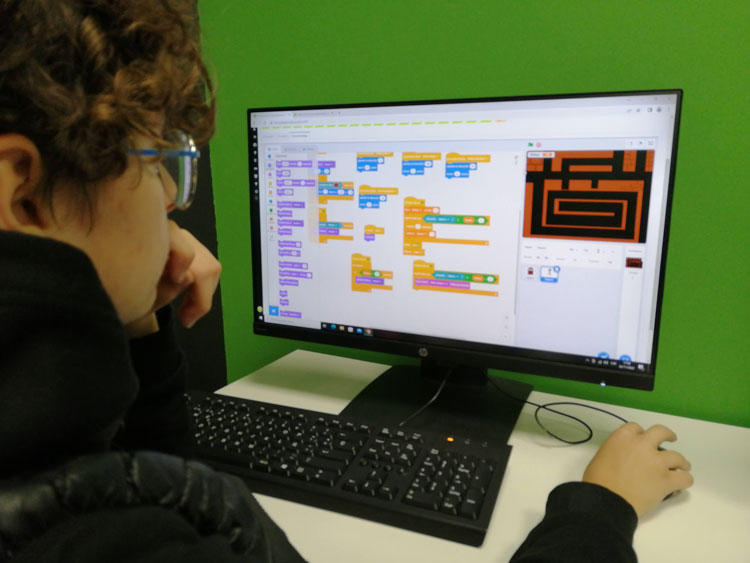Imagine moving to a different country and not learning the language of the people who live there. Your day-to-day life and communication with these people would certainly be easier if you learned their language and used it in any situation: shopping, going to the cinema, watching TV, reading the local newspaper understand what’s happening in your new city, relate to co-workers or the families of your children’s classmates… Everyone needs to interact withothers and our world is made up of many different elements, such as technology.
Technology is increasingly present in our lives and we currently live in a world that works thanks to software: our household appliances, the computers we use at work, the electronic devices we use in the supermarket to indicate what we have bought and pay with our card, the entrance doors to public transport, the smartphone we always carry in our pocket… No one can avoid having daily contact with technology and yet very few people understand the operation of all these devices and have the ability to communicate with the technology.
In other words, very few people speak the language of machines, which is a universal language that is increasingly used around the world. For this reason, in the same way that one day we understood the importance of learning at least one foreign language, the time has come to understand the importance of learning to communicate with computers. We can do this through programming and the many different programming languages that exist, through which we can give specific instructions to machines and computers in a language they understand, so that they can follow these instructions step by step to perform certain actions and achieve the goals we have set for them.
Why should everyone learn to code? On the one hand, even if we are already adults and have jobs which are not closely related to IT, technology is becoming more important every day in any professional sector. Therefore, any evolution that our work might have from now on will be related to technology and the relationship that may grow between it and our sector. Economists, lawyers, chemists, translators, doctors… Any professional sector uses more and more technological tools and more and more professionals realize the importance of acquiring basic programming knowledge to understand how software works. In addition, many of the jobs we know today will disappear or undergo significant changes, while a large portion of the jobs that will be created in the coming years do not yet exist and will require professionals who master new skills such as programming and computational thinking.
On the other hand, beyond the advantages at a professional level, learning programming also brings many benefits at a personal level, especially if we learn to code from a young age. Learning to code requires us to think in a different way and helps us work on computational thinking, which is the ability to learn to solve problems of any kind. A programmer is a person who has to look for new solutions and improvements in order to help people, so he needs to know how to listen to others, analyze the information they give him, find similarities and differences with other problems and already existing solutions, use his creativity to solve that specific problem and know how to communicate how it was done. Therefore, when we learn programming we must simultaneously work on a whole series of transversal skills that are useful in any area of our day-to-day life.
That is why we always say that learning to code is learning to think and this means that children who learn to code develop at the same time such important skills as attention and concentration, autonomy and the ability to experiment, creativity and imagination, teamwork, communication and leadership, self-esteem and self-improvement, problem solving, among others. Learning to code gets them ready to face their present and their future and gives them tools to overcome any challenge on a personal, academic or professional level. It is a very complete activity that will have an impact on their day-to-day life and, although many people think that it is a very complicated discipline, to start learning to code it is only necessary to know the basic mathematical operations and how to read and write, so anyone can start learning programming when they’re about 7 yo.
Fortunately, schools in many countries have begun to include programming and computational thinking in classrooms, so more and more people will learn about the benefits of programming sooner. In the meantime, if you want your children to acquire this knowledge or you want to try it yourself, we encourage you to discover the Codelearn method, which has been designed to teach you how to program from scratch.

